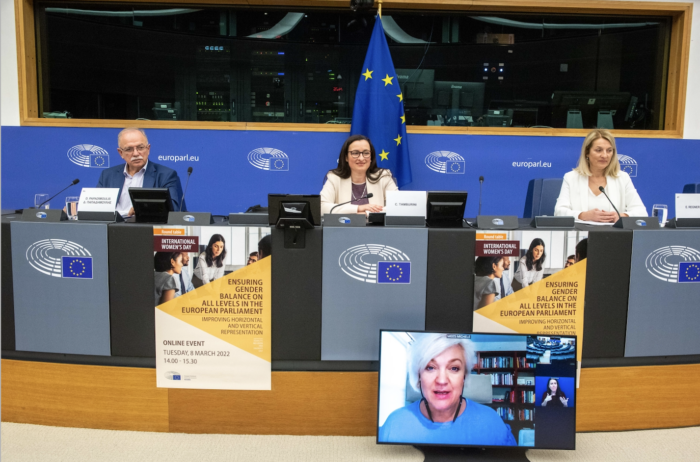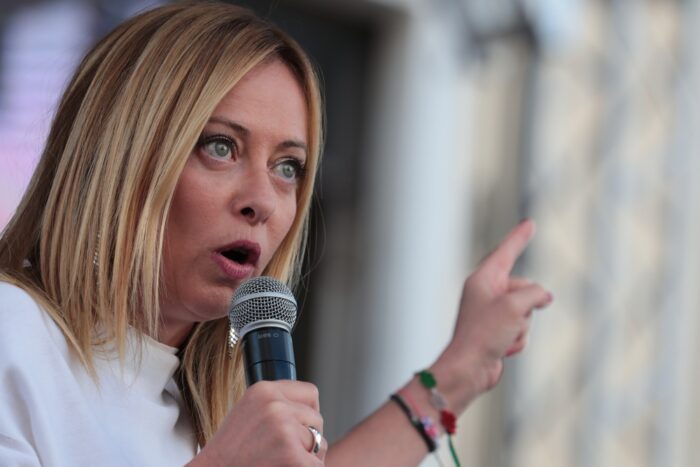The Progressive Post
Gender equality votes in the European Parliament
A narrow left-leaning majority in the European Parliament says the Commission has watered down the promotion of gender equality by only publishing a working paper instead of a full strategy for the years 2016-2020.

The centre-left coalition passed the resolution calling for a complete strategy on gender equality in early February 2016. The move was controversial, as the biggest parliamentary group, the European People’s Party (EPP) voted largely against it, criticising the centre-left’s demand for more legislation before current laws were fully implemented. The European Union recognises equality between men and women as a fundamental value and objective. The principle of “equal pay for equal work” was already included in the Treaty of Rome in 1957.
The Union has the responsibility to introduce legislation to fight against gender-based discrimination and is committed to promoting the principle of gender equality. Although inequalities still exist, the EU has made significant progress over the last decades. The working document focuses on five priority areas: “Increasing female labour market participation and equal economic independence, reducing the gender pay, earnings and pension gaps and thus fighting poverty among women; promoting equality between women and men in decision-making; combating gender based-violence, including tracking in human beings and protecting and supporting victims; promoting gender equality and women’s rights across the world.” Furthermore, the text underlines the need to include a gender equality perspective into all EU policies and funding programmes.
Analysis of the vote
 The left-leaning parliamentary majority, consisting of the Social Democrats (S&D), the Radical Left (GUE/NGL), the Greens and the Liberals (ALDE) voted in favour the resolution on gender equality and women’s rights in the Parliaments February Plenary session. The main group of the Parliament is that the Commission has until now just passed a working document. “It is very disappointing to see that the Commission thinks gender equality in the EU only deserves a staff working-document instead of proper comprehensive strategy,” said Angelika Mlinar of ALDE. The critique of ALDE is surprising, as the responsible commissioner Vera Jourova is a member of the same party grouping. Ms. García Pérez chair of the Women’s Rights and Gender Quality Committee (FEMM) and member of the S&D group, stated the European Commission was avoiding its responsibilities. “Why did the Commission not adopt a new communication publicly and transparently designed to help deliver equality between women and men?” said Garcia Perez.
The left-leaning parliamentary majority, consisting of the Social Democrats (S&D), the Radical Left (GUE/NGL), the Greens and the Liberals (ALDE) voted in favour the resolution on gender equality and women’s rights in the Parliaments February Plenary session. The main group of the Parliament is that the Commission has until now just passed a working document. “It is very disappointing to see that the Commission thinks gender equality in the EU only deserves a staff working-document instead of proper comprehensive strategy,” said Angelika Mlinar of ALDE. The critique of ALDE is surprising, as the responsible commissioner Vera Jourova is a member of the same party grouping. Ms. García Pérez chair of the Women’s Rights and Gender Quality Committee (FEMM) and member of the S&D group, stated the European Commission was avoiding its responsibilities. “Why did the Commission not adopt a new communication publicly and transparently designed to help deliver equality between women and men?” said Garcia Perez.
 Left wing parties had equally strong words, with Malin Björk (GUE/NGL) calling for a more feminist Europe. “The Commission is now blocking the development of a gender strategy; this is evidence of autocracy and patriarchal arrogance. […] It’s time to throw the patriarchal yoke away.”
Left wing parties had equally strong words, with Malin Björk (GUE/NGL) calling for a more feminist Europe. “The Commission is now blocking the development of a gender strategy; this is evidence of autocracy and patriarchal arrogance. […] It’s time to throw the patriarchal yoke away.”
The Greens called women’s rights “the unfinished business of the 21st century”. In the end, the resolution was adopted with 337 votes in favour, 286 against and 73 abstentions. A Left/Right voting split is no exception on social policies. The vote further painted an interesting picture of political group cohesion in parliament. Social Democrats, Greens and the Radical Left voted almost entirely in favour, noting just three abstentions on the Left’s side. The Eurosceptic side was more muddled, with a large part of the ECR and EFDD groups choosing to abstain rather than to oppose. The EPP managed to keep three quarters of its MEPs in line, with 11 EPP members opting to vote in favour, 25 abstaining and 168 voting against (it is worth mentioning that these issues are treated as ‘free voting’ in the EPP, i.e. the Members are encouraged to vote according to their conscience).
three abstentions on the Left’s side. The Eurosceptic side was more muddled, with a large part of the ECR and EFDD groups choosing to abstain rather than to oppose. The EPP managed to keep three quarters of its MEPs in line, with 11 EPP members opting to vote in favour, 25 abstaining and 168 voting against (it is worth mentioning that these issues are treated as ‘free voting’ in the EPP, i.e. the Members are encouraged to vote according to their conscience).
Photo credit:© Botond Horvath / Shutterstock, Inc.
Graphics: ©Polydea




